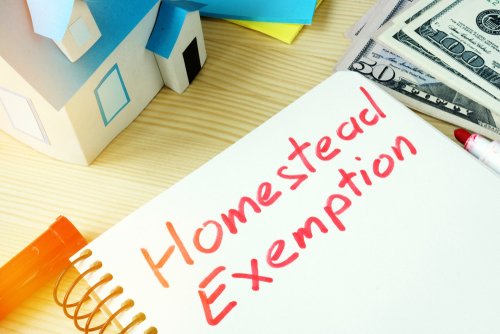Do you have equity in your home? If so, it’s an asset that can be protected, to a degree, during bankruptcy. When you file for Chapter 7 or Chapter 13 bankruptcy, the homestead exemption can help you safeguard your property and preserve your well-being. The homestead exemption differs by state, and there is also a federal homestead exemption – your jurisdiction determines which exemption can be used. Let’s examine how the process works, so you can be sure to take advantage of the benefits.
How Does the Homestead Exemption Work?
During bankruptcy, the homestead exemption considers the equity in your home – that is, the value of your home beyond what you owe a mortgage company. Your home equity is an asset that your attorney can help you protect in all, or in part, in the bankruptcy process. There are limits to what the law will allow you to keep through the process. In Indiana, the law allows each residential property owner involved in a bankruptcy case to keep $19,300.00 in equity. So, in a joint filing where both spouses are on the deed of their residence, each gets $19,300.00 in equity exempted.
How Do I Take Advantage of the Homestead Exemption?
First, you’ll need to determine whether the homestead exemption covers all the equity in your home. This requires that you know the value of your home. A realtor can help you make a value determination if you have not had the house appraised recently. In a Chapter 7 bankruptcy, a trustee can sell your property unless it is exempt. Work with your attorney to determine if there is any non-exempt equity in the real estate that would cause a problem. During Chapter 7 bankruptcy, the Trustee will not sell your house if the homestead exemption covers all of the equity. If there is non-exempt equity in your house, a Chapter 13 bankruptcy can help keep your creditors off your back and help you keep your home equity.
Can You Provide an Example?
It can be a bit confusing, so let’s look at an example that clears things up. Let’s say your home value is $200,000 and you still owe $185,000 on it. This means your home equity is $15,000. In Indiana, you can keep and exempt $19,300.00 in equity in your residence. If you file a Chapter 7 bankruptcy, the Trustee in a case with those facts will not take and sell the house for the benefit of creditors. It is exempt! However, if you only owed $150,000 on the same house, and therefore had $50,000 in equity, a Chapter 7 Trustee could sell the house to get at the equity above the $19,300 that you could protect. A Chapter 13 could help you protect that non-exempt equity. As you can see, it’s very important to choose the right bankruptcy route – in fact, it could affect whether you keep your home. Work with a bankruptcy attorney to find the right path.
Sawin & Shea – Indianapolis Bankruptcy Attorneys
Filing for bankruptcy is not the end. It’s the beginning of a new financial life for you. The Indiana bankruptcy attorneys at Sawin & Shea can help you get rid of the overwhelming debt and advise you on life after bankruptcy. We are here for you during this life-changing process. Please do not hesitate to call us today at 317-759-1483 or send an email for a free consultation. We are ready to help.



